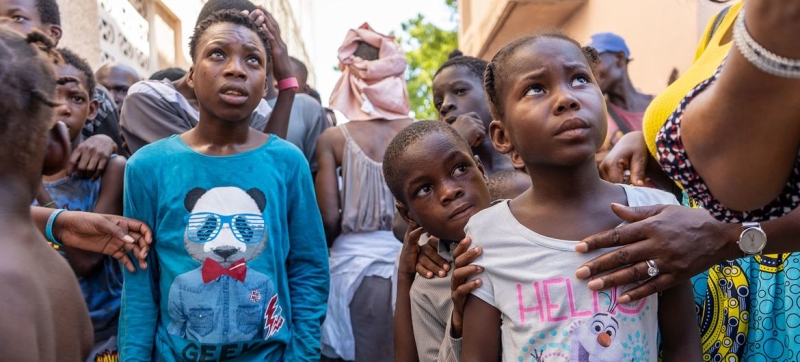
Haitian children queue for food. UN calls for support for child population of Haiti Humanitarian aid
The situation in Haiti continues to deteriorate, and children are often the victims of armed groups that are trying to establish full control over the country. They are killed, raped and maimed, said Catherine Russell, head of the UN Children’s Fund (UNICEF), at a special event at UN headquarters dedicated to supporting Haitian children on Monday.
Gangs also recruit and exploit children, drawing them into criminal activities, she noted: “We estimate that children make up between 30 and 54 percent of armed group members. The total number of children recruited by groups has jumped by 70 percent in the last year. They are used as informants, cooks, sex slaves, and are also forced to commit violence.”
Children make up more than half of the country’s displaced people, living in dire conditions in overcrowded camps and resettlement centers. Some 3 million children are in need of humanitarian aid, including food.
Lack of clean water and unsanitary conditions in which families live lead to the spread of diseases, including cholera.
“In Port-au-Prince, many hospitals and other health facilities have been forced to close due to security concerns, and 1.5 million children are also deprived of an education,” Russell said.
“To make matters worse, violence and insecurity are undermining the ability of humanitarian organizations to continue to provide assistance to Haitians in need. We continue to face limited access to areas controlled by armed groups, where 2.7 million people are displaced, including 1.6 million women and children,” she added.
According to Russell, this year UNICEF and its partners, despite all the difficulties, provided more than 259 thousand people with water and sanitation supplies. 183 thousand children and women received primary health care services, and 61 thousand children received psychosocial support.
Meanwhile, the UN World Food Programme (WFP) provided assistance to 2 million people in 2024. They received food and cash support. WFP staff have distributed nearly 3 million hot meals, including in sites housing displaced people.
“We will remain in Haiti to provide hope and to meet urgent food needs,” said WFP spokesperson Wanja Kaaria.
She noted that the needs of the population continue to grow and humanitarian organizations lack the resources to help everyone in need.
Catherine Russell called for increased donor support, noting that the humanitarian response plan for Haiti in 2024 was only 43 percent funded.
“UNICEF calls on Member States to take urgent action to meet Haiti’s growing humanitarian needs. This includes increasing flexible funding for humanitarian operations, investing in essential social services and development assistance to support recovery, and supporting the work of the Multinational Security Support Mission in Haiti,” Russell stressed.
